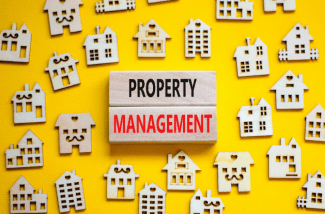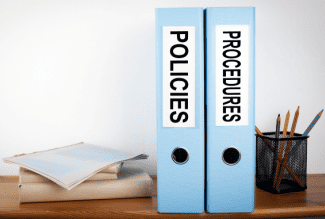What To Expect When Hiring a Property Manager
Every property manager or management company is different, with different skills and different goals, but in general property management services are designed to take the work out of owning rental property for an owner.
These are my short answers to some common questions I am asked by potential clients. And remember- this is NOT legal advice!
What does a property management company do for me?

During COVID the rules in Oregon were changing several times a year, and rarely with sufficient notification to the public. A good property manager will keep abreast of the law and work to keep you and your tenants in compliance.
An owner should receive monthly financial reports, be contacted if unexpected expenses arise, and be the person steering the boat instead of the one paddling.
How can I be sure I get good renters in our investment property?
Application screening is the process that ensures that an applicant has the resources to pay the rent that is required and that they have a history of stability and good tenancy. A good property manager will screen every application it receives to ensure that they meet with the companies’ rental criteria. Usually this includes credit, criminal history, SSI check, employment history, rental history and more.
Remember, nobody can guarantee that a tenant will comply with the terms of the rental agreement or lease. It is also important to remember all of the factors that attract good tenants. A clean, nice, updated home will attract more applicants than one that unkempt or in various stages of disrepair. Lower rates attract more applicants and higher rates tend to attract persons in a higher income bracket. Allowing pets may also attract more potential applicants. Longer leases typically attract fewer people, and shorter leases (1 year or less), or month-to-month tenancies, are typically more attractive. The more restrictive the rental criteria are the fewer people will be attracted to rent your property
Also remember that Federal Law prohibits discrimination against protected classes of people. While most people don’t intend to discriminate, it can be easy to do so by accident when advertising or talking to applicants. And the penalties can be severe. Property Managers are trained in how to avoid accidentally discriminating.
When I hire a property manager, will they do everything to take care of the investment?
The short answer is “they can”. The scope of the property manager’s authority is usually negotiated between the owner and the property manager, and is reduced to writing in the property management agreement. This document is the basis from which all future actions are based and you should read it carefully. Typically an Owner will pre-authorize some actions, often with spending limits for various potential maintenance issues.
Some owners prefer a very “hands-on” approach to handling their investments. Others prefer monthly financial reports and occasional phone calls. How much work you want the property manager to cover for you should be discussed in detail so both parties know what to expect.
Do I give up my authority when I sign a management agreement?
Typically you do not “give up” your authority; you confer the authority to the PM to make decisions and act in the best interests of you and the property. You are creating an “agency” relationship with your PM, and you are authorizing them to make daily decisions for you in the manner they believe best address’s your needs. The property management agreement is the basis for the PM’s authority, so you should read it carefully.
It’s important to remember that your property manager cannot break the law for you, and that some things are such an integral part of their policies that they cannot accommodate unusual requests in those areas. Further, they are running a business too. They will not likely do anything that negatively impacts their income. However, you are in control. A last resort is to terminate the management agreement.
Is the property manager financially responsible for making the home or apartment ready to rent, and for all advertising costs?
These questions should be answered in the property management agreement, but usually the answer is No. The PM is responsible for making sure the home is rentable (maintenance, cleaning, safety and habitability problems and so on), for insuring that the bills are paid and that the rent is collected. They are NOT responsible for the financial requirements to make these things happen. In short, the PM will do the legwork and make sure the issues are addressed, but the owner is responsible for the financial burden.
In other words- If the tenant does not pay rent the PM will take appropriate actions but will not cover the missing rent payment. If a tenant damages your rental the PM will schedule repairs but the cost of the work is paid by the property owner. Sometimes those costs can be recovered from the tenant, but if not the cost is paid from the owners funds.
Is the property manager responsible if they don’t collect the rent, or if the tenant damages my property?
Free Rental Application
Get 20 Rental Forms for FREE, including a rental application.
Your PM cannot make the tenant do anything. Your PM can negotiate with tenants, remind them of legal obligations, and serve notices and so on to pressure them into conforming to the terms of their agreement. But they have no rights that a property owner does not have- they are acting as your agent.
Remember that the short and long term benefits of investment property ownership are the owners, not the PM’s. The tax benefits, cash flow, appreciation and equity enjoyed by the owner are completely unavailable to the PM. They are paid for their services based on the terms of the management agreement. Because an owner stands to make a considerable sum from an investment property over time, it only makes sense that the Owner is the one who should financially maintain the investment.
How long will it take to rent out any vacant space? How much rent can I charge?
A current market study of the rental prices in an area will give you a good starting point, and most PM’s do this regularly or shortly after a notice to vacate is received. How long renting will take depends on many factors. These include rent rate, interior quality, neighborhood, amount of deposits or prepaid rent (total move-in costs), pet and other restrictions, advertising platforms, availability, the season or time of year and so on.
Remember that this is a sales function, and that likely someone out there that will rent regardless of the situation. The real question is- how long will you wait for them. The best tactic is to advertise early (once a completion or move-in date is established), set the rent rate to a reasonable amount and use signage and online platforms to get the word out.
What happens if the tenant is evicted? Will I ever see the money they owe me?
Though any number of things might occur during the eviction process, typically the tenant moves out or is locked out by the sheriff. In many cases the home will require a considerable amount of work including trash hauling, painting and cleaning, often some minor or major maintenance. Typically it takes 3-5 weeks to evict a tenant, and you can plan on some additional time to make the unit rentable again.
There is usually plenty of documentation supporting the claim of the landlord against the tenant. Some companies will pursue tenants for a short while and then transfer the account to a collection agency. Or, an owner may take the file to small claims court (or civil court). However, the sad truth is that owners rarely see payments from past tenants. It is often such a small amount that owners often decide not to spend the money to pursue legal action.
Can I instruct the PM to do or not do specific things with my property or the tenants?
Yes. Your PM is your agent and they have an obligation to assist you in meeting your needs. However, keep in mind that they are also required to follow the law, that they are regulated and overseen in ways an Owner is not, and that they have a reputation of their own to maintain. If you insist that they do something that is against the law or is detrimental to their own business, they will most likely refuse or even terminate the management agreement.
I am very pleased with the performance of my management company. What should I do?
Tell all your friends and business associates!!! Word of mouth is the best advertising. If you are happy with your property manager, help them out by telling others about your experience.
Source: Rental Housing Journal















 Accessibility
Accessibility